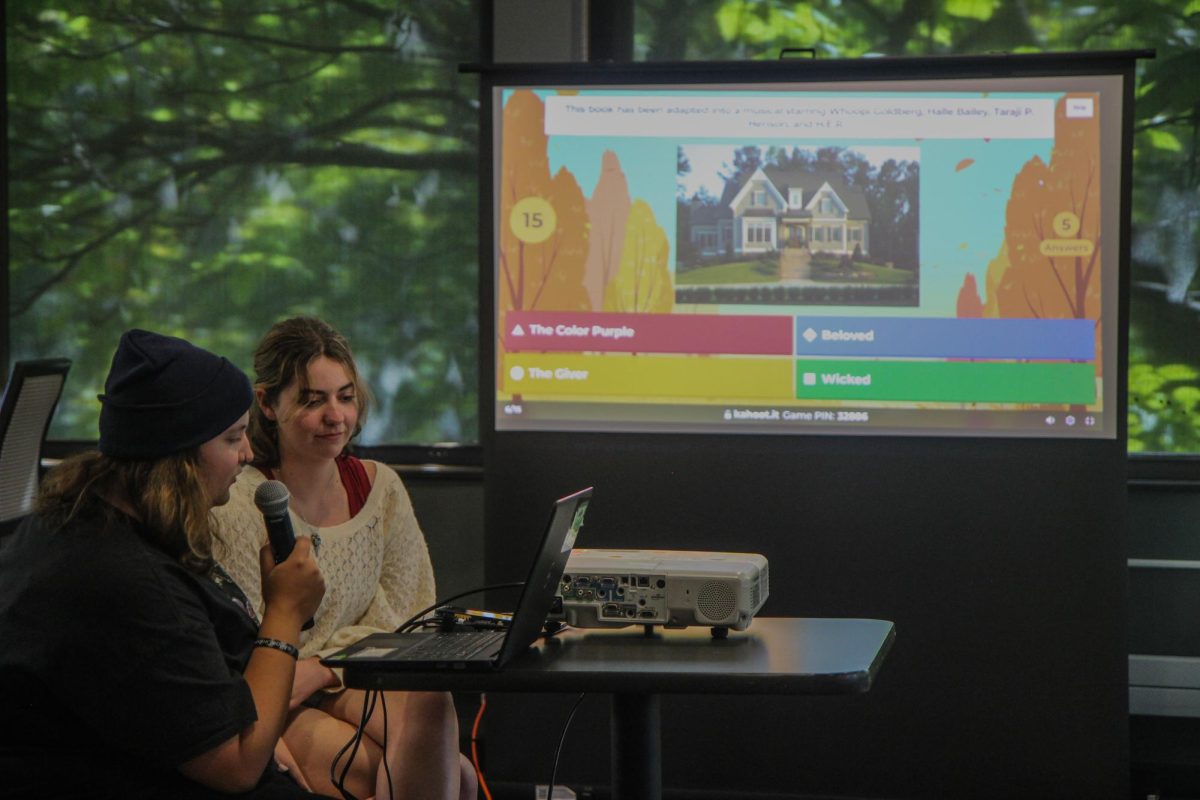At Augustana, many students find a cozy spot to study in the Thomas Tredway Library, a pillar of knowledge and enrichment for students to experience a robust collection of books. The library is a place for creative and educational freedom, with a wide selection of material ranging from academic text to niche visual novels. Some books housed within Tredway’s walls are part of a collection you may not find in every school across the United States. These are the banned books.
The history of banning books in America is lengthy, starting in 1637 with the Puritans of present-day Quincy, Massachusetts. Over the years, this practice has expanded greatly, reaching an ultimate high in 2024 as over 10,000 books were banned in schools across the United States.
To combat this, Judith Krug, a member of the American Library Association, created Banned Book Week to raise awareness about and protest the censorship of reading materials in schools. This year, Banned Book Week ran from Sept. 22 to 28. At Augustana, the Tredway Library partnered with the Augustana Book Club to create an interactive way to bring students together through trivia.
Sophomore Cassie Kontos, co-president of the Book Club, said this activity aims to create a safe environment for discussing book bans in the United States and the reasons behind their banishment.
“It might be the parents [are] wanting to be more involved in their children’s education,” Kontos said. “It’s not that they weren’t fifty years ago, but there is a lot more literary intake, and parents are analyzing that and getting more involved in what their children are learning. So, if parents don’t like what their kids are reading and they don’t want it to be taught, that can make a difference.”
Junior McKenna Lewis, co-president of the Book Club, said that this interference can affect future generations of learners and their academic perspectives.
“I feel like [students are] missing out on a whole experience,” Lewis said. “Even if a book doesn’t fit your personal identity, there is still a value in learning about the things that affect other people.”
Along with this, Kontos says that college students should be concerned about the banning of books considering they are a part of our education.
“There’s a lot of these books that we read in class,” Kontos said. “And since we’re involved in these books, it’s good to learn about why they are being banned. It’s also just a good way to get involved in literature in general.”
Garrett Traylor is a research and instruction librarian with an M.S. in Library and Information Science from the University of Illinois at Urbana-Champaign. Traylor is extremely passionate about this topic and expresses joy in being in Illinois, where books cannot be banned due to the bill passed in June 2023 by Gov. Pritzker that outlawed the banning of books.
“The contested books are overwhelmingly written by authors in the LGBT community as well as materials by black and indigenous people of color,” Traylor said.
Some of the books that are banned with these themes include “Gender Queer” by Maid Kobabe, “All Boys Aren’t Blue” by George M. Johnson, “The Catcher in the Rye” by J.D. Salinger, “This Book is Gay” by Juno Dawson, “The Absolute True Diary of a Part-Time Indian” by Sherman Alexie and “To Kill a Mockingbird” by Harper Lee. All these books include themes surrounding racial inequality and LGBT+ relationships and experiences.
In addition, Traylor mentions that this past year has seen the most attempts for book bans in the history of the United States, which is alarming given that a significant proportion of those materials discuss the challenges presented to minorities.
“If anybody’s wondering, ‘why is it so important?’ Well, people find it important enough to try and ban these materials,” Traylor said. “So that should tell you something.”











































































































